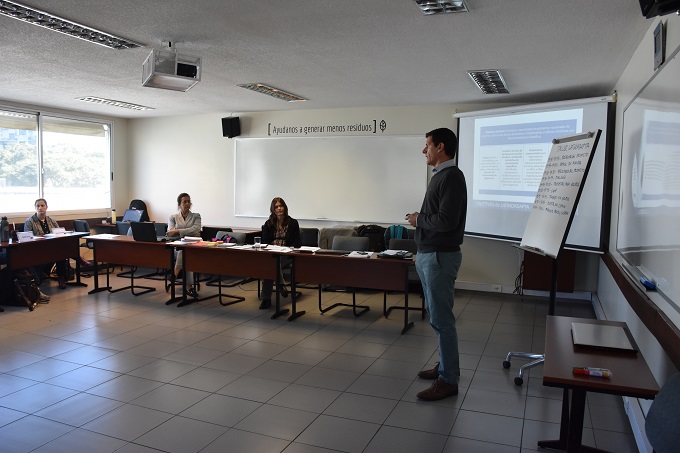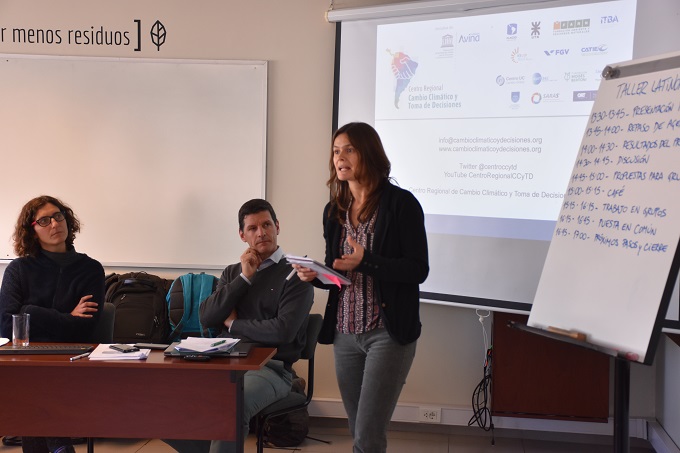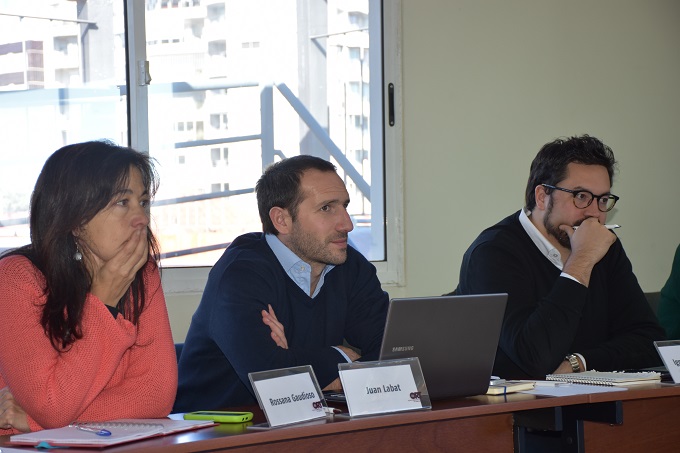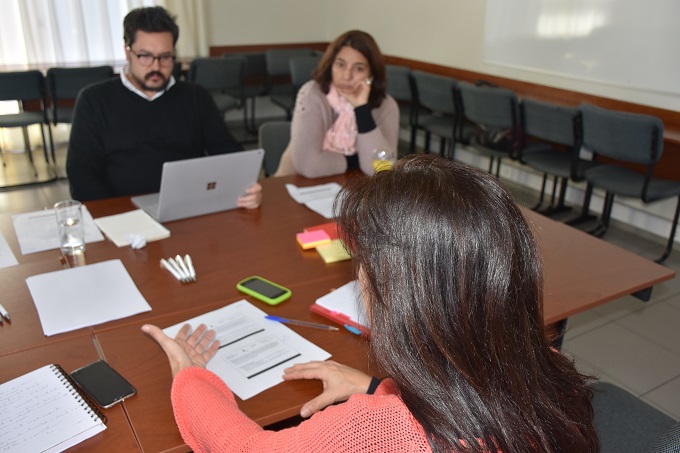First workshop on Science-Policy dialogue in Uruguay, in the context of LatinoAdapta
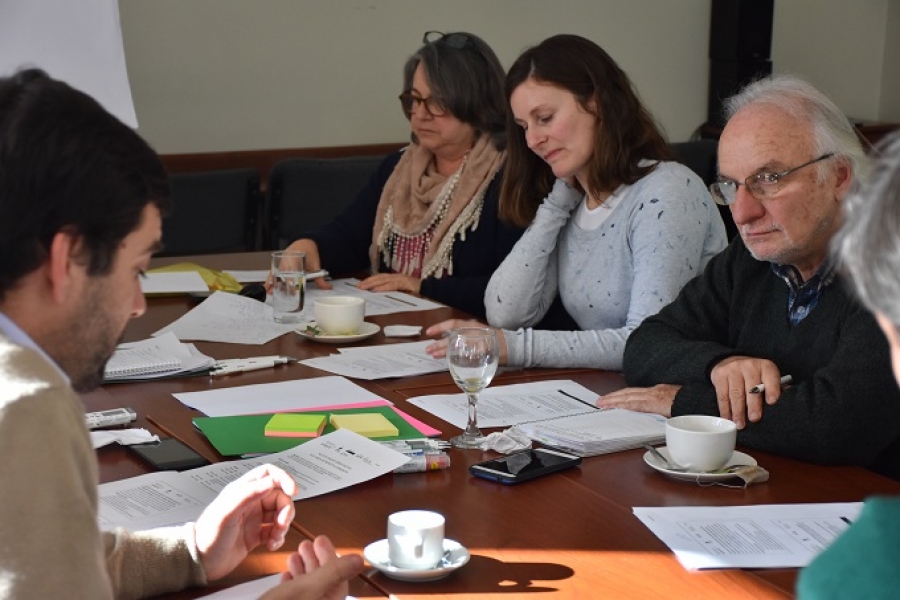
“Latino Adapta: Strengthening the links between science and governments for the development of climate-related policies in Latin America” is a research initiative that seeks to identify and analyse the knowledge gaps affecting the development and implementation of measures and policies related to the adaptation to climate change in six Latin American countries: Argentina, Brazil, Chile, Costa Rica, Paraguay and Uruguay.
The project, which is in the final stretch of its initial diagnosis phase, is being executed by the Regional Centre on Climate Change and Decision-Making with funds provided by the Canadian International Development Research Centre (IDRC). In Uruguay, the institutions that are associated to the Centre and are carrying this project forward are SARAS Institute and the Faculty of Administration and Social Sciences, ORT University, Uruguay (FACS – ORT). The research team is conformed by Micaela Trimble, Néstor Mazzeo and Cristina Zurbriggen (SARAS), Francisco Rosas (FACS-ORT), and the research assistants Ana Lía Ciganda and Paula Santos. On a regional level, it is lead by Paula Ellinger (Avina Foundation), coordinated by Enrique Maurtua Konstantinidis while Paula Bianchi (SARAS-Regional Centre on Climate Change and Decision-Making) is in charge of communications.
The workshop assembled a group of 15 participants which included decision-makers from governmental institutions and actors from academia linked to actions and policies in relation to climate change adaptation. Among its objectives, the workshop aimed at presenting the main project results regarding the identification of knowledge gaps in terms of adaptation based on an online survey which included semi-structured interviews to researchers and decision makers, as well as an analysis of the policies related to adaptation. Moreover, it aimed at analysing and discussing proposals on how to make progress towards the resolution of the identified knowledge gaps.
During the activity, a series of plenary as well as group activities were developed during which specific proposals made by the research team were analysed so as to serve as triggers for discussion.
In one of the exchange groups, the discussion was focused around the possibility of the generation of platforms that may assemble the disperse knowledge needed to analyse the indicators that allow to monitor the degree of adaptation of the diverse systems affected by climate change and variability (such as cities, the agriculture sector, the energy sector). It was stated that such platforms should be dynamic and have the capacity to turn the knowledge that they gather “actionable”, so that it is useful for decision-making at different levels. This should contribute to the objectives of reporting, monitoring and verification (MRV) of adaptation actions.
In the other group, there was agreement on the need to generate a space for continuous dialogue between governmental institutions decision-makers and academic actors, with the aim of promoting and improving the design and implementation of adaptation policies and actions to climatic change and variability based on available or co-created knowledge. Different alternatives were discussed to guarantee that this space may continue over time, just as the definition of the right institutional design, the determination of a consensual agenda, the creation of funding mechanisms and the need to value these activities within academia and government, among others.
During the final part of the workshop, both groups shared the results of their work and some initial actions were outlined. There was a consensus that the key and most competent organ able to materialize the proposed initiatives at the governmental level is the Coordination Group at SNRCC (National System of Climate Change Response).
The research team from LatinoAdapta Uruguay will elaborate a document to synthesize the workshop results for the consideration of the Coordination Group at SNRC, after which, a second work session can be planned.
